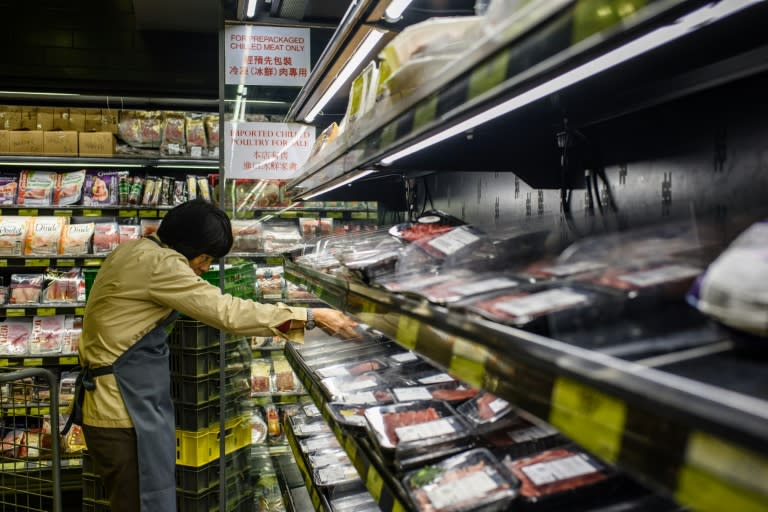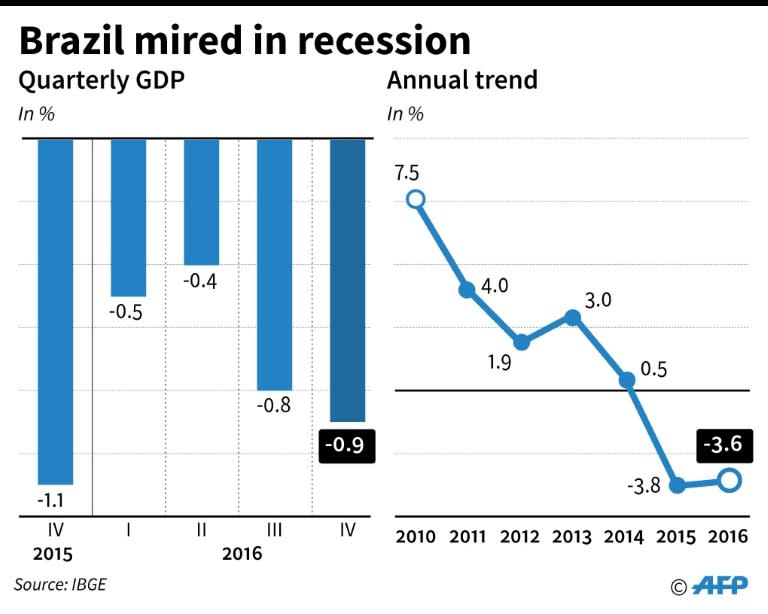Anti-corruption fever rages on eve of Brazil protests
A lot's rotten in Brazil -- from politics to tainted meat exports -- and activists hope big crowds will show their disgust Sunday. A long-planned day of nationwide protests will seek to turn the screws on corrupt leaders and to defend prosecutors heading politically explosive probes into bribery and high-level theft. The goal, said organizer Rogerio Chequer from the Vem Pra Rua (Take to the Streets) group, will be to stop members of Congress accused of corruption "from getting away with it." Brazilians have a lot to be angry about. A giant, three-year probe named Operation Car Wash has uncovered a seemingly endless web of politicians and executives who fleeced state oil company Petrobras, with a lot of dirty money funneling into party election funds. That probe got even bigger this month with the request by Prosecutor General Rodrigo Janot for the opening of new investigations expected to target more than 100 politicians. Leaks indicate that at least five ministers in President Michel Temer's government, the speakers of both houses of Congress, and ex-presidents Dilma Rousseff and Luiz Inacio Lula da Silva will be in the crosshairs. Revelations about corrupt politicians are an almost daily occurrence. But Brazilians got a shock on a new front last week when police said they'd uncovered a scheme to bribe corrupt health inspectors at meatpacking plants to certify tainted meat. Although the scale of the bribery and adulteration of bad meat is relatively small -- 33 inspectors are being investigated out of a force of 2,300 -- agribusiness, like oil, is a pillar of the economy. And the fallout has been devastating. China and Hong Kong suspended all imports and Brazilian officials say that exports have dropped by a stunning margin: from $63 million a day to just $74,000. - The backlash - The scandals inside the oil and meat industries have been deeply embarrassing -- and harmful at a time when Brazil is in its deepest recession ever. For those marching on Sunday, this is the painful truth-telling that Brazil needs. But among those targeted by Car Wash prosecutors and the implacable lead judge, Sergio Moro, there is barely disguised panic, as well as anger against what they call an out-of-control judiciary. Lawmakers are trying to pass legislation that would pardon anyone who had received undeclared campaign donations in the past, while making it illegal in the future. This would effectively become an amnesty for politicians who took secret donations or what may have been plain bribes. Another initiative being discussed is to change the electoral system so that voters cast ballots for parties, not individual candidates, meaning that scandal-tainted politicians would be able to escape much of voters' anger. - Scandal fatigue? - In a country with more than 12 percent unemployment and two straight years of recession, there may be growing weariness at the kind of protests that Sunday's organizers hope to stage. "People are concerned about the corruption, by attempts to undermine Car Wash, but they're especially worried by the economy," said Daniel Vargas, a law professor at the Getulio Vargas Foundation in Rio de Janeiro. Take to the Streets organized huge protests last year that helped push Congress into forcing the unpopular Rousseff out of office in an impeachment vote. However a nationwide anti-corruption protest held last December drew far smaller crowds. Vargas said it was easier to attract people onto the streets when they had what they saw as "a clear enemy" in Rousseff. Now the popularity of the anti-corruption fight is being dented by disillusionment and fear, accentuated by the economic damage from the meat scandal. "They're tired of this subject. It's been two or three years that this word corruption has been used to mobilize the people and promoted as a cure for all the problems in the whole country," Vargas said. "Even the people who are most worried by corruption have stopped to reflect on the impact of decisions taken to combat it," Vargas said.




